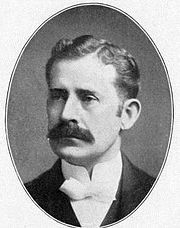Reuben Harrison Hunt | |
|---|---|
 | |
| Born | February 2, 1862 |
| Died | May 28, 1937 (aged 75) |
| Nationality | American |
| Occupation | Architect |
| Practice | R. H. Hunt Company |
| Buildings | Soldiers and Sailors Memorial Auditorium |



Reuben Harrison Hunt (February 2, 1862 – May 28, 1937), also known as R. H. Hunt, was an American architect who spent most of his life in Chattanooga, Tennessee.[1] He is considered to have been one of the city's most significant early architects.[2] He also designed major public building projects in other states. He was a principal of the R.H. Hunt and Co. firm.
He came to Chattanooga in 1882 and within four years had established a successful architectural firm. Hunt designed a number of Chattanooga's homes and public buildings, including the Soldiers and Sailors Memorial Auditorium (1922), the Joel W. Solomon Federal Building and U.S. Courthouse (1934) with Shreve, Lamb and Harmon,[3] the Hamilton County, Tennessee Courthouse (1912), the James (1907) and Maclellan (1924) buildings, the Carnegie Library (1905) and the St. John's Hotel (1915).
Hunt also designed churches throughout the South. This included well-known Chattanooga churches such as Second Presbyterian Church and First Baptist Church,[4] as well as The Tabernacle in Atlanta.[5] Numerous works by Hunt are preserved and listed on the National Register of Historic Places,[6] 21 of which are covered in one 1979 survey study.[7]
The U.S. Post Office and Courthouse in Chattanooga, Tennessee, built 1932–1933, was Hunt's last major work. Hunt designed every major public building constructed in Chattanooga between 1895 and 1935. He was also the architect of local churches, hospitals, and private office buildings, as well as similar public and private buildings throughout the South.[8] In 1938 the Chattanooga building was recognized by the American Institute of Architects as one of the 150 finest buildings constructed in the previous twenty years in the United States, and it was featured in an AIA photographic exhibit in America and Europe.[8]
- ^ Butler, Sara A., "TN Encyclopedia: REUBEN HARRISON HUNT", Tennessee Encyclopedia of History and Culture, retrieved 2009-01-29
- ^ National Register of Historic Places Nomination Form: Buildings in Hamilton County Designed by R. H. Hunt, 1980
- ^ Townsend, Gavin (2010). "Chattanooga, Tennessee: A City Transformed" (PDF). Newsletter of the Southeast Chapter of the Society of Architectural Historians. 27 (2). Society of Architectural Historians.[permanent dead link]
- ^ Wilson, John (March 7, 2004), "Architect R.H. Hunt's "References"", The Chattanoogan, archived from the original on June 3, 2009, retrieved April 9, 2010
- ^ "Plans Accepted for Tabernacle; Work Will Begin", The Atlanta Georgian and News, vol. VI, no. 82, p. 7, November 8, 1907, retrieved April 8, 2010
- ^ "National Register Information System". National Register of Historic Places. National Park Service. March 13, 2009.
- ^ M. A. Carver (February 1979). "National Register of Historic Places Thematic Group: Buildings in Hamilton County Designed by R. H. Hunt".
- ^ a b "GSA - Find a Building". Joel W. Solomon Federal Building and U.S. Courthouse, Chattanooga, TN: Building Overview. U.S. General Services Administration. 2009-08-24.